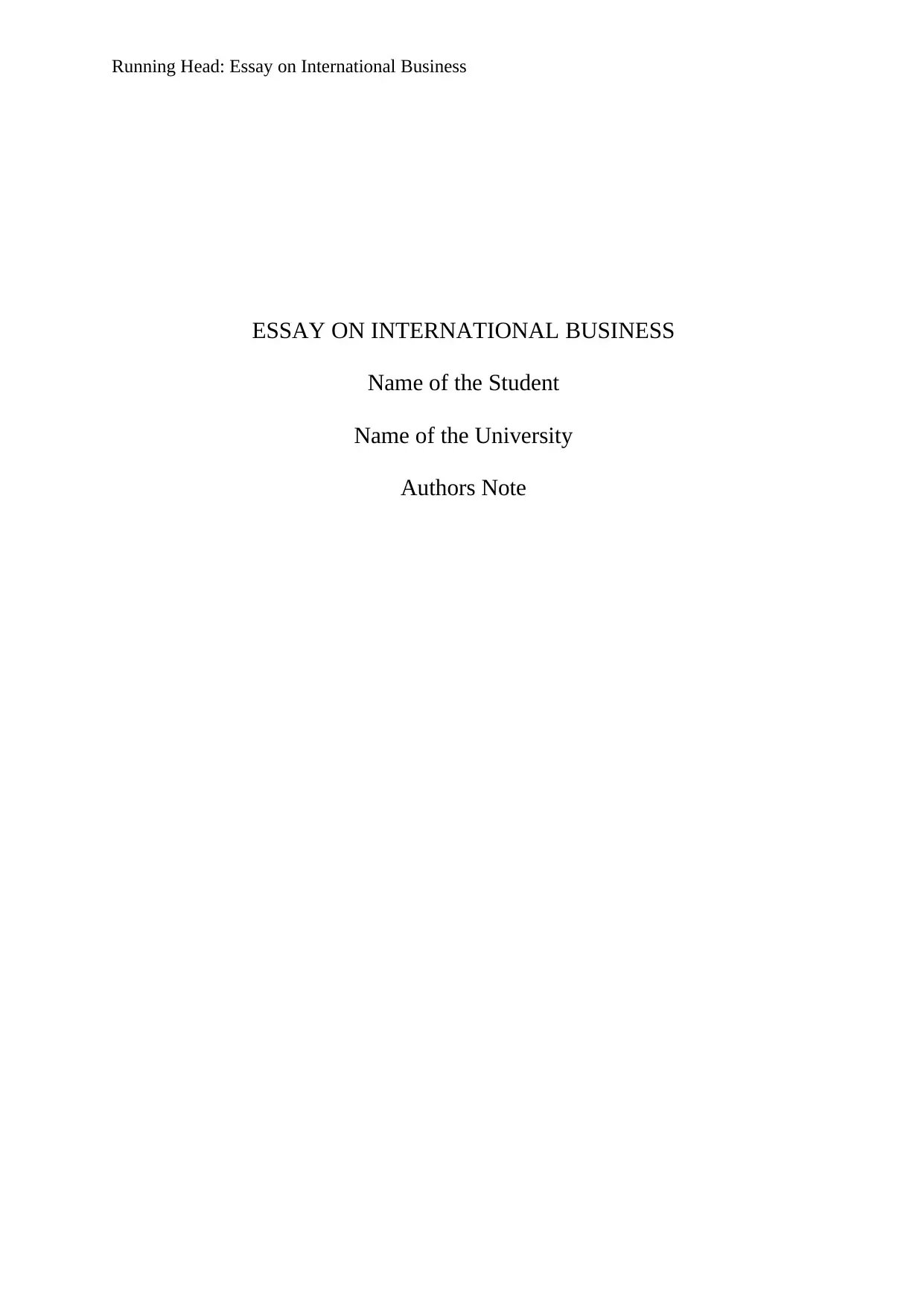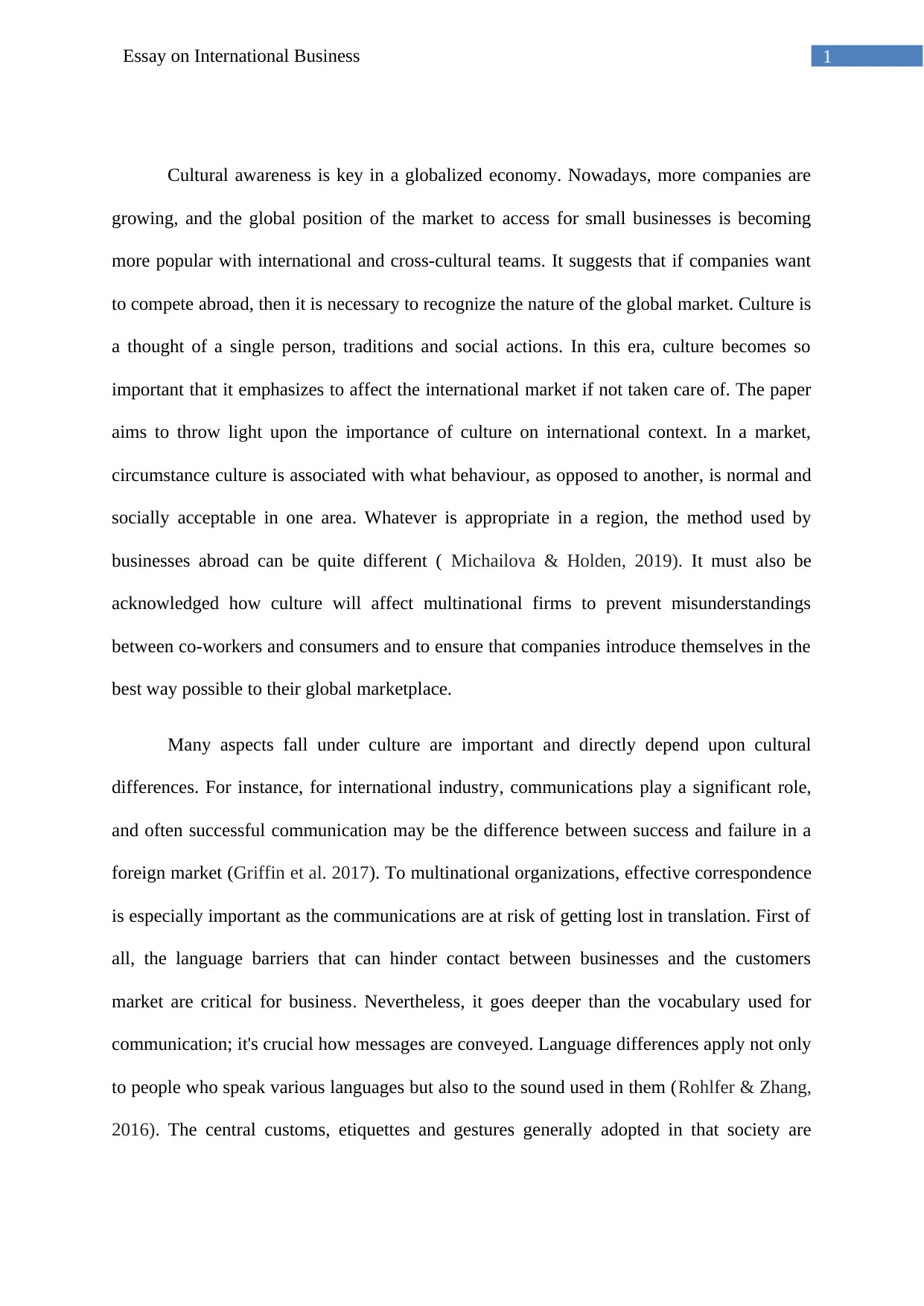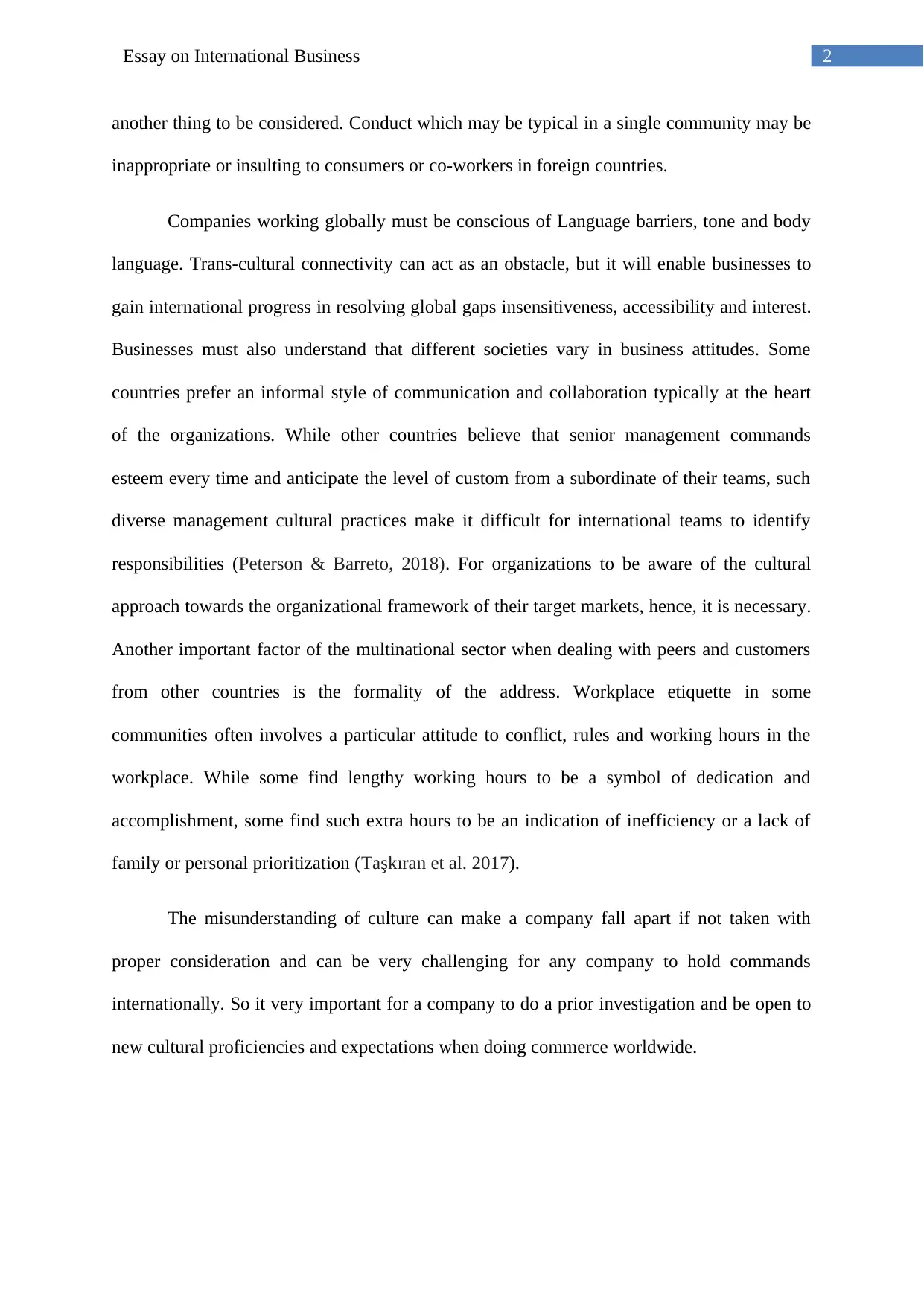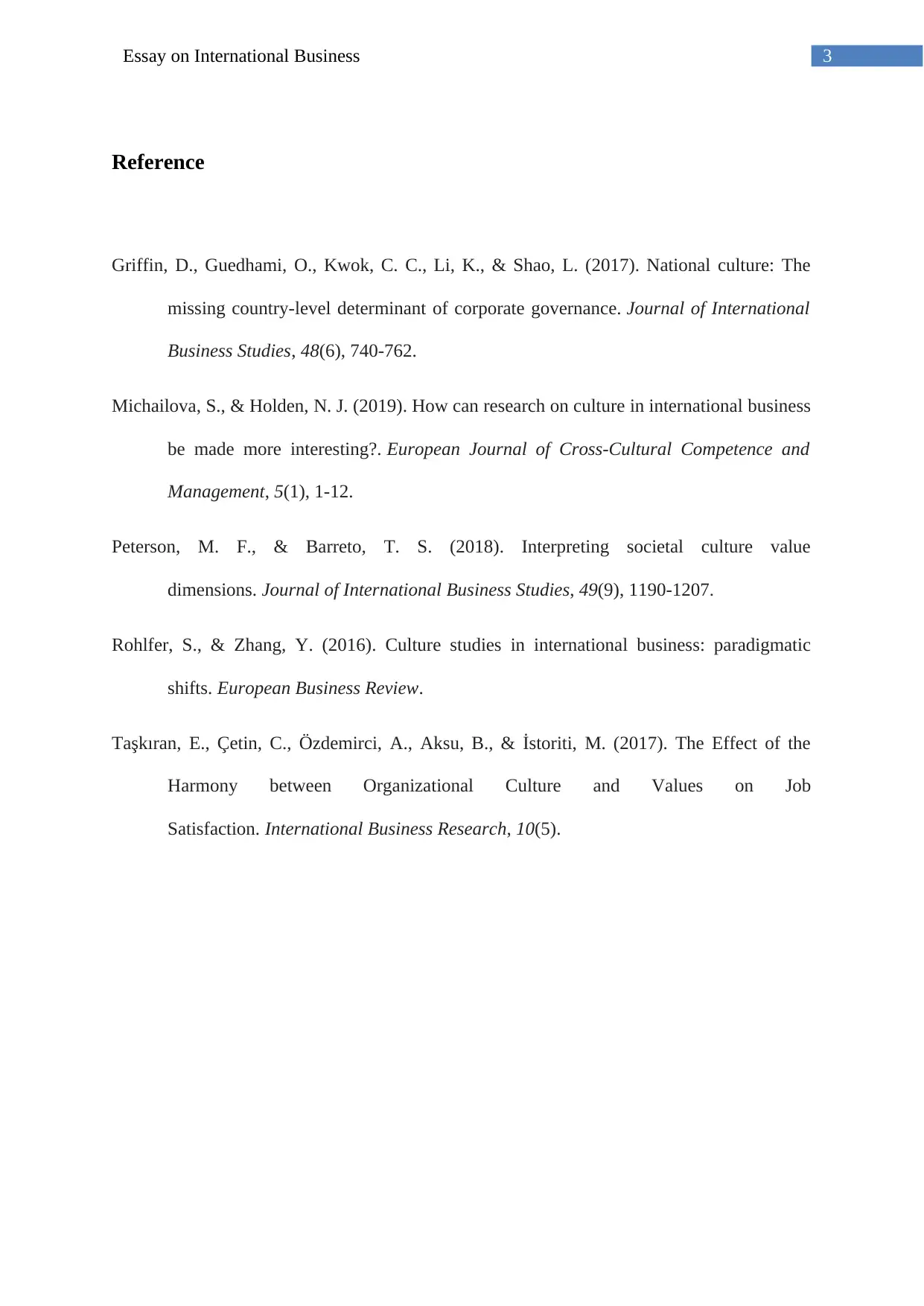International Business Essay: The Importance of Cultural Awareness
VerifiedAdded on 2022/09/12
|4
|893
|18
Essay
AI Summary
This essay delves into the critical role of cultural awareness in international business, emphasizing its impact on global market success. It highlights the necessity for companies to recognize the nature of the global market to compete effectively abroad. The essay explores how culture influences communication, language barriers, business etiquette, and organizational frameworks in multinational firms. It discusses the importance of understanding cultural differences to avoid misunderstandings and foster effective collaboration. The paper also touches upon the need for businesses to adapt to various cultural attitudes towards business practices, including communication styles, workplace etiquette, and management approaches. The essay underscores the significance of prior investigation and openness to new cultural proficiencies for companies engaged in international commerce, referencing key factors that contribute to success or failure in a foreign market.
1 out of 4











![[object Object]](/_next/static/media/star-bottom.7253800d.svg)